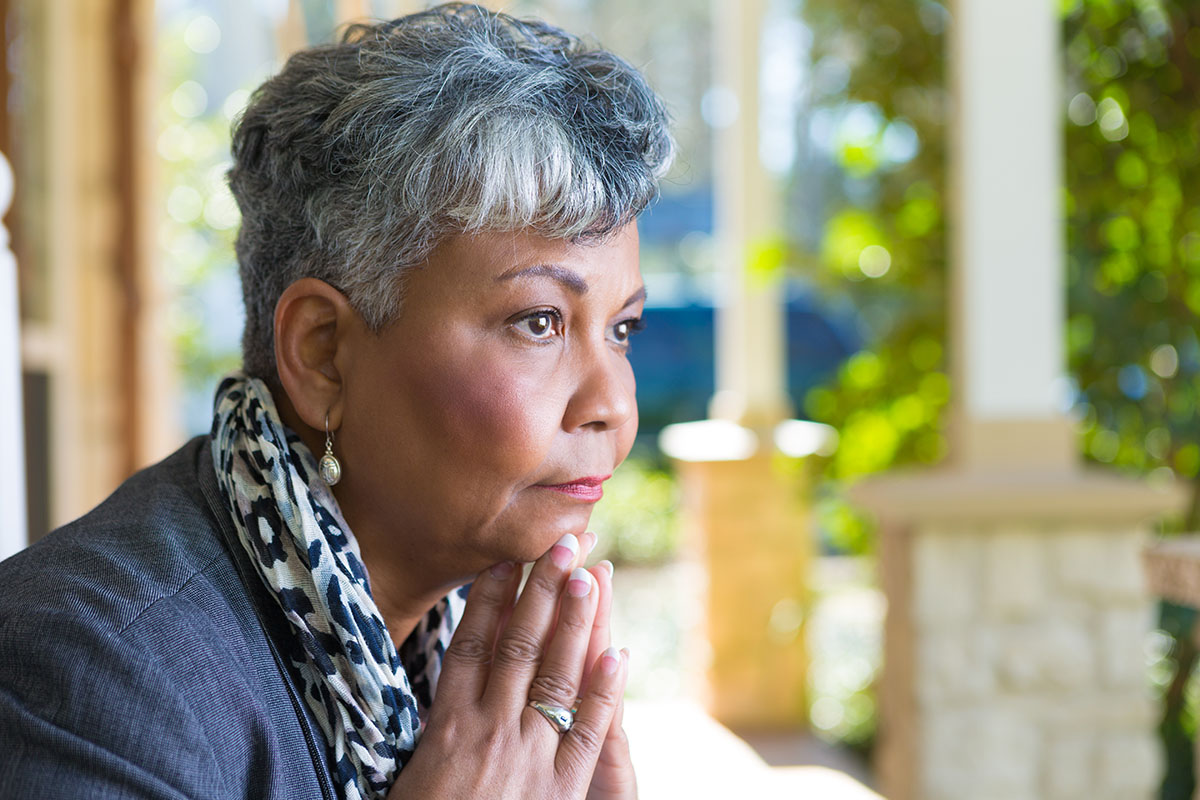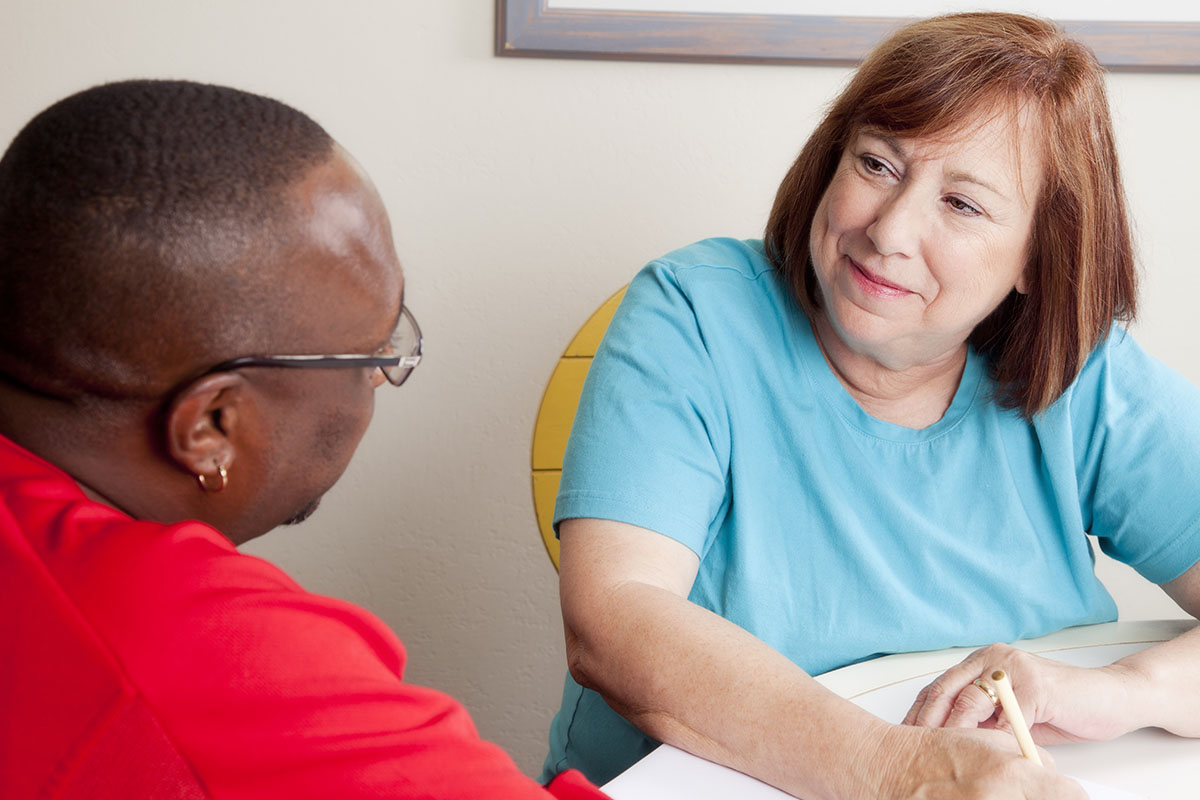Community Hospice & Palliative Care understands caring for a seriously ill loved one can be challenging. The whole family feels the effects of advanced illness. In fact, families often need as much, if not more, attention as the patient. Our care supports the whole family, with guidance to help you make the most of the time that remains. We will manage pain, help your loved one feel comfortable and help you understand what to expect.
Along with managing pain and symptoms, dispensing medications and providing personal care, we teach you how to help your loved ones when we’re not with you. We also can get your loved one out to enjoy activities, or stay with them while you take a break. We’ll also be there to help you through practical matters like insurance paperwork or finding community resources. For those hard times, we offer counseling and emotional support.
Our compassionate staff will guide you through your most challenging questions and issues. We’ve been there many times before, and we’ll be there for you, too.
Please view our quick tips book for easy reference and answers to many of the questions you may have.
After the death, we remain by your side with up to 13 months of bereavement support from our licensed counselors. Please click here for an information sheet about Community Hospice & Palliative Care.

We provide medications for treatment of symptoms related to the hospice diagnosis and included in the plan of care. We review all medications with our medical director and pharmacist, who are experts in pain and symptom control, to ensure the best possible symptom management.

We provide patients with medical supplies and durable medical equipment (DME) as called for in their customized plan of care. Our dedicated, trained DME technicians offer a caring, gentle approach to delivering equipment during this sensitive time.
Our care team requests all equipment, relieving caregivers of the physical and financial burden of arranging for these items. Equipment can include things like hospital beds, specialty mattresses, oxygen, wheelchairs and items to help with activities of daily living.

Our experienced care team members have walked this journey with many families. They will take the time to get to know you and share important updates about your loved one. They will also provide you with information and resources about the illness and the dying process, so you can prepare for what’s next.

Sometimes caregivers need to take a break from offering care to replenish their caring spirit. It’s not a selfish thing; in fact, it’s necessary for all caregivers. Our care team can assist with arranging volunteer companionship or short-term respite care when needed.

Relatively simple tasks can become challenging ordeals when you give so much of yourself as a caregiver. Our social workers can help you complete vital insurance applications or identify community- or government-based services that can help. We can also point you to support groups and counseling opportunities if desired.

Sometimes all you want after a long day of caregiving is for someone to listen to you. Our care team members are compassionate guides who take the time to listen, answer your questions or just be there when you need someone. Our chaplains also can provide spiritual counseling or request representatives from your faith community, should you want them.

It is sometimes hard to eat enough food to give your body the nutrition it needs. While decreased appetite and tolerance to some foods can be a normal part of illness and disease progression, there are ways to try to boost the amount of calories and protein you take in without having to eat more food. Consume only what you tolerate with a focus on comfort and, if you are a caregiver, encourage, but never force or insist that the person eat or drink. Click here for helpful recipes.
Here are tools and resources that offer support to family caregivers. If you’re struggling to balance your life with your role as caregiver, please ask for help.
The Patient & Caregiver Training Guide is designed to provide information about our care and to address frequently asked questions and concerns. We hope this guide addresses many of your initial questions and provides other important information to assist in meeting your care needs.
Voice of the Caregiver
At Community Hospice & Palliative Care, we deeply value our collaboration with family caregivers. Your insights are invaluable to us. In addition to the CAHPS survey, we have launched the Voice of the Caregiver project to better understand caregiver needs.
The There for You booklet provides in depth detail for patients, families and loved ones who are beginning their hospice journey.
Here are some videos for family members and caregivers to help with their loved ones. If you have an emergency, please call our Patient Priority Line at 877.699.7300. Learn More
The National Alliance for Caregiving is one of the nation’s leading organizations in advancing family caregiving. It does this through research, innovation and advocacy, championing local action to empower caregivers with the resources to thrive in their role.
The Rosalynn Carter Institute for Caregiving, an advocacy, education, research and service unit of Georgia Southwestern State University founded by the former First Lady, conducts research and provides training and education for caregivers and the organizations that support them.
For more than 40 years, FCA has provided services to family caregivers of adults with physical and cognitive impairments, such as Parkinson’s, stroke, Alzheimer’s and other types of dementia. Click here to learn more